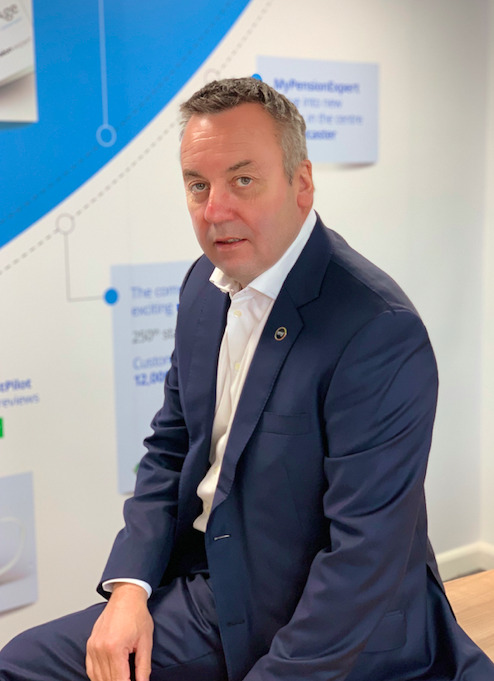
Retirement planning is a tricky business; People are living longer, the state pension age is increasing along with the age one can access personal pensions schemes and financial issues around the world are said to have impacted pension funds. In this article, Financial Expert, Andrew Megson provides a guide to help those planning for retirement.
With the Government gradually easing lockdown measures throughout the UK, it finally seems like we are witnessing the beginning of the end of the pandemic. However, this does not mean that the financial uncertainty of the past twelve months has come to a halt.

The past twelve or so months has upended the plans of many Britons, not to mention their retirement strategies. As the UK stock market took a hit, the planned pension investments of some individuals might not have offered as strong returns as they had hoped.
Consequently, some prospective retirees might be looking towards alternative methods to grow their pension pots more quickly. According to My Pension Expert’s recent research, a significant one in eight (13%) of individuals have moved some or all of their pension into a high-risk investment in order to boost its value.
It goes without saying that such a major financial decision should not be made without careful thought and consideration. Before taking the leap, here’s what Andrew suggests;
Calculating your individual risk appetite
Even the most experienced investors can fall into bother when making decisions about their assets, so pension planners should set aside some time to calculating their risk appetite before doing so. There are three main elements to consider when doing this:
Firstly, savers should consider their personal attitude towards risk; naturally, this will vary significantly from person to person. Individuals must consider how comfortable they are with the prospect of suffering losses if their investments don’t perform well.
If this sounds like a good match, then the saver in question is likely to be more open to taking risks with their investment strategy.
Another key consideration prospective retirees should consider is their long- and short-term financial goals, as well as their timeframe and need for returns. For example, suppose an individual is looking to save for a short-term financial goal, such as saving for a car or house deposit.

In that case, they will likely look to avoid investments that are sensitive to market fluctuations. On the other hand, those looking further into the future might want to consider investments like shares, which offer a better chance of beating inflation.
A final consideration that individuals should make when adapting their investment strategy is their capacity to handle losses, should an investment fail, as well as their financial commitments.
Ultimately, if suffering a loss would mean that an individual would not be able to make bill repayments, or live comfortably, then looking to less risky investments would be a safer bet. Also, if an individual has caring responsibilities or any financial dependents, then high-risk investments might not be the best fit.
Does the risk outweigh the reward?
Once savers have considered all of the factors and decided whether riskier strategies are for them, individuals should allocate careful time and consideration to the types of investment they would consider opting for. Surprisingly, it isn’t always the case that high risk means high reward.

For example, the likes of zero or low-liquidity investments like property, art, and some less frequently traded stocks are often touted as a good option for those looking to grow their pension pot.
However, this is not always the case, as it can be difficult to convert these investments into cash without running the risk of losing some of their value. Likewise, it can be difficult to access the cash tied up in these investments on demand, which might put some savers off, should they need this cash to hand during times of economic uncertainty.
Gated investments, such as commercial property funds, are often pushed as similarly profitable investments, offering the prospect of big returns. Yet, it can be equally difficult to access their cash if they opt for these investments because investors can be blocked from withdrawing from these funds. Given the financial unrest that many have experienced over the past year, this might not sound like an inviting prospect.
Ultimately, there is no one-size-fits-all guide to risk appetite, and individuals will differ greatly in their approach and ease with riskier investments.

If savers are unsure where they sit with regards to their own risk appetite, it can be useful to consult an independent financial adviser for support, who can help by providing questionnaires and in-depth analysis to demystify the process. What’s more, they can help clients to develop a financial strategy that suits their client’s risk appetite and financial goals.
The key is to ensure that all financial decisions, whether they are low or high risk, are made by conducting careful due diligence. Doing so should guarantee that all savers are well-equipped for a financially secure retirement.
About Andrew Megson
Andrew is the Executive Chairman of My Pension Expert, the UK’s number one Advised Retirement Income Specialist. Founded in 2010, My Pension Expert specialises in providing independent advice to UK consumers about their pension plans – it arranges millions of pounds worth of retirement income options each week.
Read more financial and investment guides and features here.
![]()




You must be logged in to post a comment.